NBA free-agency breakdown: Point Guards | Shooting Guards | Small Forwards | Power Forwards | Centers
NBA free agency is here again, and that’s probably more exciting in theory than it will be in practice.
The recent trend of teams signing their best players to contract extensions long before they hit the market means we see a lot less talent hitting free agency than we used to. And several seem to have their destinations preordained.
Advertisement
Thus, we enter summer with only one or two situations in which a legitimate star player has genuine drama about where he will play next. (We think, anyway…)
Even teams that re-sign their own players, however, need to figure out what those players are worth. That means it’s once again time for my BORD$ tool to make an appearance. For those who are new around here, BORD$ stands for “Big Old Rating Dollars” and provides an estimate of what a player should be worth in the 2024-25 season based on the NBA’s current guidance of a $141 million salary cap. You can find a much longer description of the methodology here.

Free, daily sports updates direct to your inbox. Sign up
Free, daily sports updates direct to your inbox. Sign up
BuyToday, we’re sharing the BORD$ values for my top 25 free agents, regardless of position. In the coming days, we’ll share values for every plausible free agent at every position.
Note that I said “plausible.” A few players, such as Chicago’s Alex Caruso and Indiana’s T.J. McConnell, could technically become free agents if their teams waive their non-guaranteed contracts, but that possibility is so remote that I have not included them. On the flip side, I also did not list the Bulls’ Lonzo Ball, since there are better odds of Sasquatch showing up in my living room than there are of Ball opting out of the $21 million he’s owed in 2024-25.
I did, however, address one special case involving a few players — most notably Isaiah Joe and Sam Hauser — in my analysis of Joe below. With that said, here are 2024’s top 25 dollar-value free agents by BORD$. (Ages listed as of June 30, 2024.)

LeBron James

*James has a player option for 2024-25
In yet another small testament to his greatness, LeBron James turns 40 later this year and still projects as the most valuable free agent in the league by BORD$. He also still rates as valuable enough that a max contract would underpay him in the first season of the deal.
For James to return to the Lakers, he essentially has two options. The first is to opt out in late June and sign a new three-year deal as a free agent in July, which could be for a maximum of three years and $160 million based on current cap guidance. The other option is to opt in to his deal for $51.4 million next season then sign an extension once he is eligible in late August; that could add two additional years for a total of three and make him $162 million over the three seasons.
Why would he take less money with the former option? Because that one can come with a no-trade clause, which would either guarantee he stays a Laker (and presumably retires as one) or controls his next destination. James could also sign with another team for a maximum of three years and an estimated $155 million, but that seems highly unlikely.


Tyrese Maxey

*Maxey will be a restricted free agent
Why didn’t the Sixers sign their 23-year-old breakout All-Star to an extension last fall? Because his cap hold counts for a mere $13 million until he puts pen to paper on his next deal, thus allowing the Sixers to spend nearly $60 million cap room on free agents before Maxey inevitably signs his max contract as a restricted free agent (though Maxey technically could sign an offer sheet elsewhere and for less money, which the Sixers seem near certain to match).
That deal will pay him $205 million over five years, and the only real drama in his negotiation with the Sixers is whether it will include a fifth-year player option and a 15-percent trade kicker. It will start at $35.25 million in 2024-25 based on current cap guidance, and as you can see from the BORD$ value above, that will still be a bargain for Philly.


Paul George

*George has a player option for 2024-25
George is, without a doubt, the most interesting free agent to watch this summer. Smoke signals have been coming out since late winter that George and the Clippers weren’t on the same page on his next contract, with George wanting the full four-year bag and the Clippers wanting him to ink an extension for three years that would match their $150 million commitment to Kawhi Leonard.
That’s perhaps understandable given that George is 34 and has been increasingly hampered by assorted nicks and bruises; his 74 games played last season were his first full-ish season since leaving Oklahoma City. George, however, is also one of the league’s best two-way players, with the ability to play on or off the ball and guard multiple positions. The Boston Celtics showed us just how valuable players like this are in roster construction.
The tension here is that George chose LA for a reason and presumably prefers to stay, all things being equal. But he can make $212 million over four years if another team signs him to a max deal, dwarfing what the Clips could put on the table unless they’re also willing to go to a fourth year.
Note that George has a player option for 2024-25 for $48 million; if he reached a new deal with the Clippers, it could happen by him opting into the deal and then appending years to it. That’s largely a technicality, however; either way, his next contract will have the same impact on the cap and the same limitations on raises and length.


James Harden
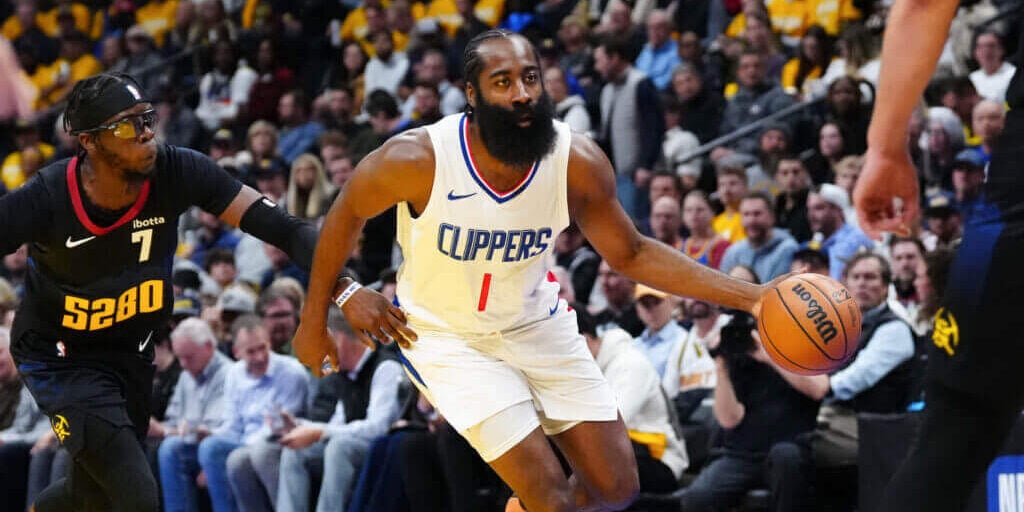
This dollar amount probably strikes people as on the high side; Harden is still a very effective player, but he turns 35 in August, and his playing style is not for everybody. One of the key elements in any Harden contract is how many years to offer, especially since he’s shown signs of decline the past two years and isn’t exactly renowned for his conditioning.
On the other hand, this is a guy who scored 33 in a road playoff win over Dallas and had 61.6 percent true shooting for the series. The Clips lost to the Mavs and Harden struggled in the final two games, but it’s tough to blame that defeat on him. Finally, the Clippers are subject to the Bird rights trap and can’t replace him if he walks.
Given that Leonard is signed for three more years, I’d expect a Harden deal to line up with that and come in at a lower number than this BORD$ value – perhaps three years and $90 million to $100 million.


Pascal Siakam

Siakam has already agreed to a four-year, $189 million max extension with the Pacers with no team or player option. The contract would start at an estimated $42.3 million for 2024-25, which isn’t too far off this valuation.
Given what Indiana gave up to acquire him, there was presumably an understanding of what might be required to retain Siakam when the trade with Toronto went down. Siakam is 30, so the back end of this deal could get rough, but the projected 10 percent cap raises in the following three seasons should take away some of the sting. Also, note that the deal is for four years and not five, which Siakam was eligible for; the value on the four-year deal, however, slightly exceeds what any other team could have offered him.


OG Anunoby

*Anunoby has a player option for 2024-25
As with Siakam above, New York likely acquired Anunoby with some understanding of what it would take to keep him, especially given that he is repped by CAA, The Official Agency of the New York Knickerbockers.
Note that Anunoby has a player option, and the Knicks could theoretically sign him to an extension off that number. However, because the salary on that option year is so low ($19.9 million) and extensions are limited to 140 percent raises on the final season of the previous contract, Anunoby is all but certain to opt out and sign a new contract. Look for his next deal to land in line with this BORD$ figure, around $140 million to $150 million over four years.


Immanuel Quickley

*Quickley will be a restricted free agent
Advanced numbers tend to like Quickley more than his raw output, and he struggled at times when put into too heavy of a shot-creation role in Toronto. Additionally, his restricted status is likely to soften his free-agent market, as nobody will want to tie up their money while waiting for Toronto to inevitably match.
I expect his eventual contract value to come in lower than this number. The good news for the Raptors is that the 25-year-old Quickley’s next deal should cover the prime years of his career. A four-year pact worth between $100 million and $120 million strikes me as a likely sweet spot.


D'Angelo Russell
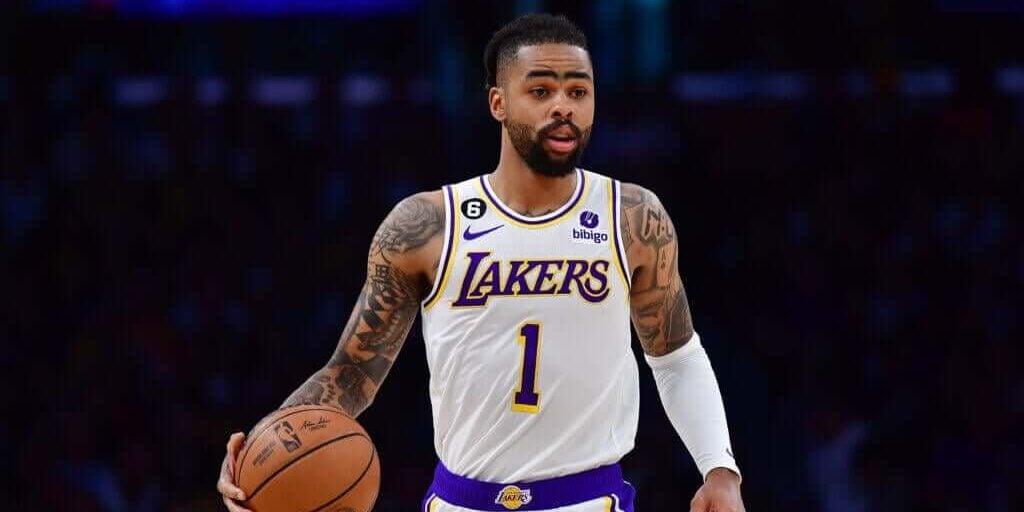
*Russell has a player option for 2024-25
While most would consider this on the high side for Russell, consider that he’s still only 28, has had eight straight seasons with a PER above the league average and was especially good in the second half of last season. Offsetting that is his rough playoff history and shortcomings as a defender.
Nonetheless, Russell has a player option for $18.7 million and seems to be in good position to exceed that if he opts out. Perhaps more importantly, Russell can control his destination for next season, given that his opting in would likely lead to his being an expiring contract included as matching salary in a trade package for a more prominent player.


DeMar DeRozan

DeRozan is an interesting case because the magic number is less about money than it is about years. How far into the future are you willing to go for a soon-to-be 35-year-old who leans heavily on one-on-one scoring and isn’t a notably effective option off the ball?
Other issues loom, as well. For one, DeRozan’s game isn’t a fit everywhere. But the other issue to watch is Chicago’s luxury-tax position (despite being a big market, the Bulls historically have been loath to pay the tax).
If the Bulls can’t get relief from the $21 million owed to the injured Lonzo Ball, they would likely go over the tax line if they re-signed both DeRozan and Patrick Williams at their market rates. Thus, keep an eye on Zach LaVine – if they can turn his $43 million obligation for the coming season into something less onerous, it creates a lot more wiggle room to keep the rest of the roster intact.


Isaiah Hartenstein

The Knicks are being punished for signing too good a contract. Hartenstein is on the second year of a deal that paid him just $9.2 million last season and isn’t extension-eligible. As an early Bird free agent, the Knicks can’t sign him for more than $16.2 million for next season, but his market is considerably more than that. If another team swoops in with a $100 million bag, what is New York to do?
One possibility is a one-plus-one deal that signs Hartenstein for $11.1 million for 2024-25 and has a player option for the next season; if he were to opt out next summer, he would have full Bird rights with New York and be eligible for a contract of any size up to the max and for up to five years. (His early Bird maximum of $16.2 million for next year requires at least a two years deal with no options; his max on a one-year deal is just $11.1 million.) I’m not saying there would be a wink-wink arrangement that New York would take care of him if he agreed to the one-year deal now, as that would be illegal and therefore we shouldn’t consider the possibility. But maybe things could just happen to turn out that way.


Kentavious Caldwell-Pope

*Caldwell-Pope has a player option for 2024-25
Caldwell-Pope’s conundrum for the Nuggets is that he stands to make the team incredibly expensive, with a player option for $15.4 million for this season but a BORD$ valuation for much more. While he’s already 31 and the years will be a consideration, one could easily see a team giving him an offer somewhat similar to Bruce Brown’s arrangement a year ago (Brown got two years, $45 million), except perhaps even more expensive. Would it be crazy to go three years and $80 million with a third-year team option?
I wrote about this already when I previewed free agency, but the Nuggets can also negotiate an extension with Caldwell-Pope that builds off his $15.4 million salary for 2024-25. If they were to retain him, this seems like the most cap-friendly way, even if it involves overpaying him in the later years of the deal. A four-year extension would add $97 million, taking the total value to $112 million and paying him until he’s 35. Is that better than what he can do in the cap room market? It’s close, seemingly.
Note that, if Caldwell-Pope leaves, the Nuggets will still be over the luxury tax for 2024-25 and would only have the taxpayer midlevel exception and trades as a means to replace him.


De'Anthony Melton

Melton was injured much of the second half of the season and seems to be a guy coaches don’t quite trust to be a two-way starter, but he’s consistently rated as one of the league’s most underrated players. A career 36.9-percent 3-point shooter entering his age-26 season, Melton’s next contract should have a solid floor and would pay him through his prime seasons.
I’d be shocked if he got as high as $26 million, but cap room teams, especially some of the rebuilding and quasi-rebuilding ones, should be taking a hard look at him in the $20 million a year range. Philadelphia’s own cap room dreams may preclude a return from him, but note that the Sixers have an avenue to keeping him where they keep his $15.2 million cap hold on their sheet, spend the rest of their free-agent money, then ink Melton to a longer-term deal that pays more than the $15.2 million.


Tobias Harris

I know this number will shock people after his no-show in the playoffs, but Harris was actually good for most of the season, and his past three seasons have been pretty consistent at a plus-starter level. He turns 32 in the offseason, so his next deal is likely to be a short one, but for teams in the market for a starting four, there just aren’t a lot of options this summer. Don’t be surprised if he gets something close to this dollar figure annually on either a two- or three-year deal.


Isaac Okoro

*Okoro will be a restricted free agent
Okoro might be a good target for cap room teams looking to sign an offer sheet. Cleveland is only about $11 million from next year’s projected tax line. Matching a strong offer for the young defensive specialist would take the Cavs past the first apron unless they made another trade to drop salary (Caris LeVert and Georges Niang would be the two most likely alternatives).
Okoro is only 23 and became more comfortable shooting from the perimeter in 2023-24, hitting 39.1 percent from 3 while increasing his volume. He still needs to develop as a movement shooter and get more comfortable in off-the-dribble situations, but he projects as a starting small forward who still has some upside left.


Nic Claxton
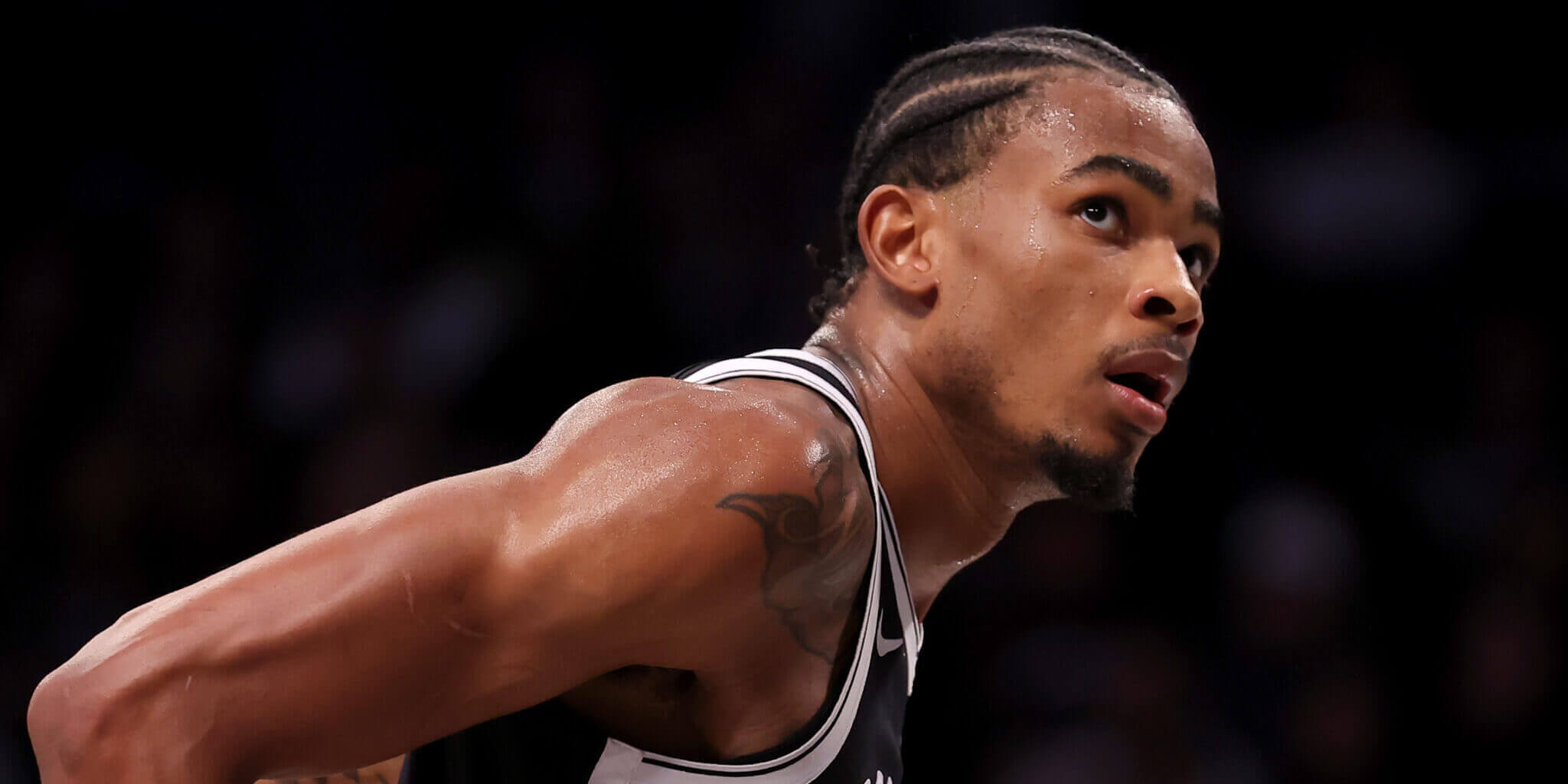
The level of agreement on Claxton is strange – nearly everyone seems to expect him to return to Brooklyn on a deal worth roughly $90 million over four years. Apparently BORD$ is in on it, too, as this dollar figure is right in that range. The Nets aren’t set up to replace him, cap-wise, so they have a lot of incentive to get him re-signed with Bird rights.


Chris Paul

Paul has a $30 million non-guaranteed deal for 2024-25 with Golden State; the Warriors have until June 28 to waive him if they don’t include his contract in a trade first and are widely expected to do so as they try to rein in an extravagant payroll.
As a free agent, this is likely a generous valuation for the 39-year-old Paul, whose level of play dropped off noticeably at both ends of the court last season. In the right situation, however, his IQ and shooting can make him a very valuable third guard.


Saddiq Bey
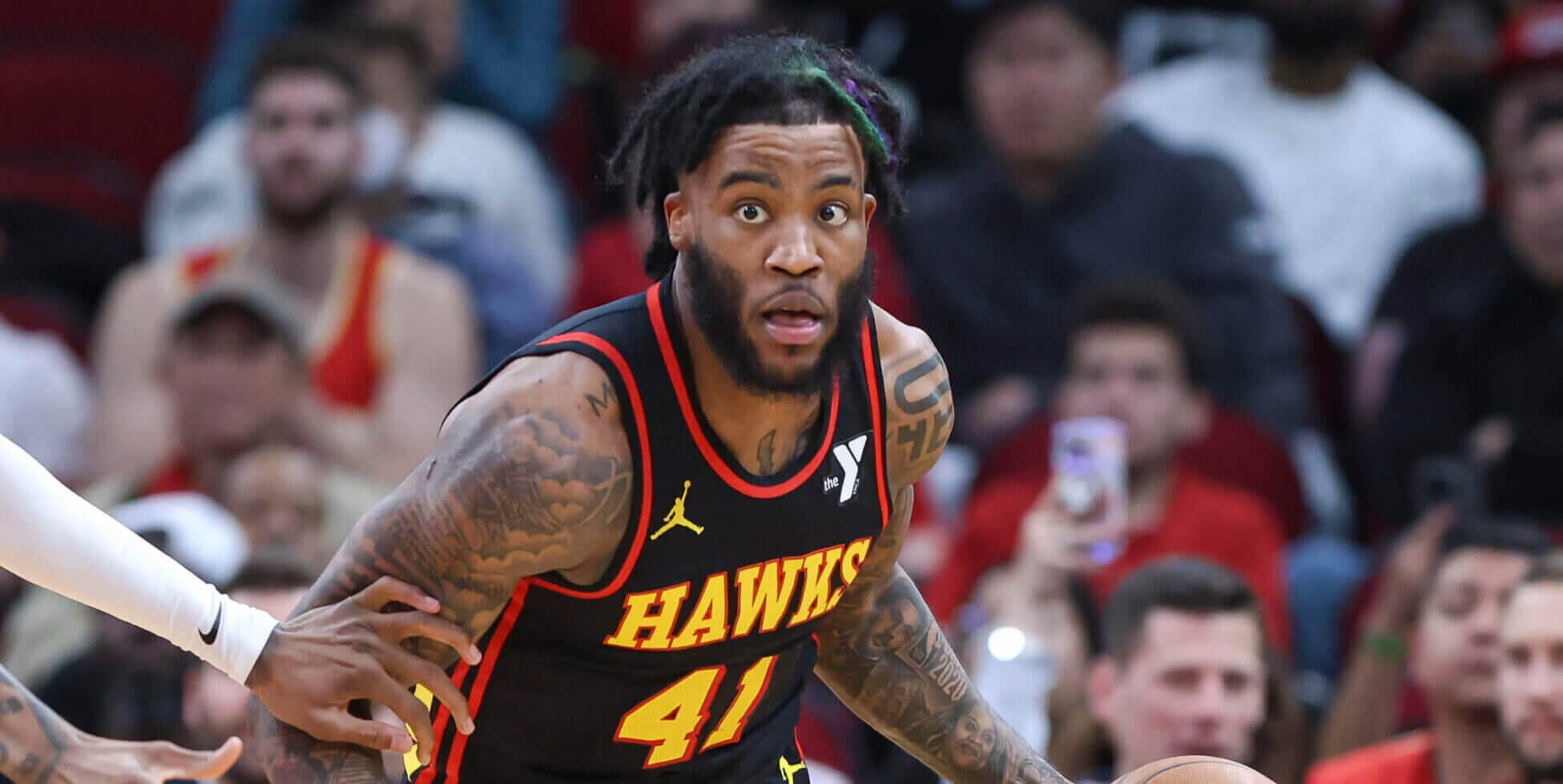
*Bey will be a restricted free agent
This number will likely shock Hawks fans, given that I created this formula and it shocked me. It also doesn’t account for the fact that Bey tore his ACL in March and would seem likely to miss a significant chunk of next season.
Bey is 25, and his 3-point shooting last season was outlier bad (31.6 percent) relative to the rest of his career, so Atlantans likely saw him at his worst. His uncertain health situation, however, makes it difficult to assess his value properly. The Hawks have matching rights on an offer sheet, but in the absence of a trade between now and the end of June, even his qualifying offer of $8.5 million could be a problem given the Hawks’ current luxury tax situation.
If Bey does return, even on a cheapo one-year deal, the benefit for both parties is that he would retain full Bird rights for a more lucrative future deal. That might be his best endgame if a market for a multi-year doesn’t develop due to his injury.


Isaiah Joe

*Joe has a team option for 2024-25
Joe has a team option that will pay him just $2.1 million for the coming season. He’s one of the biggest bargains in the league. If that’s the case, why on Earth would Oklahoma City decline the option and let him hit free agency?
In a word, cap shenanigans. Oklahoma City can decline his option and keep him on the cap with a $2.1 million cap hold. The Thunder could then use the rest of their estimated $31 million in cap room to sign other players before doubling back to pay Joe. The trick here is that the Thunder would have negotiated beforehand what a long-term deal with Joe might look like, and then paid him less in future seasons to offset the much larger bag he’ll get in 2024-25.
For instance, if you think Joe would have merited a three-year, $55 million deal a year from now, the move might be instead to decline the option and pay him $57 million over four, with a declining salary structure that lets the Thunder manage their cap into the time frame when Chet Holmgren and Jalen Williams start what are likely max extensions in 2026-27. As a side benefit, doing so would also give the Thunder a bit more tradeable matching salary to put into future deals outside of their core pieces.
Oklahoma City could also do the same thing, at a lower level, with Aaron Wiggins, who is due $1.9 million in 2024-25 and has a BORD$ value of $9.8 million. The basic idea is the same: Oklahoma City’s roster is cheap now but will suddenly get very expensive in two years, so the Thunder’s cap strategy should be to stuff as much future salary as possible into the time frame before 2026-27.
I alluded to a similar tactic in my Celtics’ wrap-up when I mentioned Sam Hauser, who is in a nearly identical situation in Boston. The difference is that Boston is already a tax team, so the math is much more complex than it is for the Thunder and could have prominent players coming off the books in future seasons that make Hauser’s next contract easier to swallow. That’s why I listed Joe here but not Hauser, who has a similar BORD$ valuation.


Spencer Dinwiddie

Dinwiddie is a risky player to me, and I was surprised by this valuation. His offense and shot-creation both fell off sharply this season, across two different teams, and you’re not really employing a 33.3-percent career 3-point shooter as a floor spacer.
While his plus size for a point guard gives him some cross-positional functionality, and he generally held up well on defense last season, I’d be worried that the 31-year-old has lost a step and adjust my offer accordingly. I’m not sure BORD$ has caught up to that yet, as it still weighs his stronger 2022-23 season in putting together this estimate.


Malik Monk

Historically, the free-agent market has over-indexed on scoring and placed less value on defense, so Monk is almost certain to get paid more than this. He could get much more, given that he’s 26 and finished second in the Sixth Man of the Year voting recently.
As with Hartenstein above, the Kings are in a rough spot in their quest to retain Monk because he’s coming off a two-year deal and will only have early Bird free-agent rights. As with Hartenstein, Sacramento’s only plausible means of keeping Monk seems to be a Kathryn Hahn Special one-year deal with a player option that allows the Kings to sign him to a larger, longer deal next season.
However, it’s much easier to make that kind of commitment for a starter on a No. 2 seed like Hartenstein than a team in the Kings’ position. Because of that, the one-plus-one doesn’t feel like a realistic strategy for the Kings to commit to for a secondary player. It feels more like a worst-case fallback for Monk if the market is softer than he hoped, sans any firm commitment from the Kings to pay him later.
UPDATE: Monk agreed to a four-year deal to remain with the Kings


Kyle Anderson
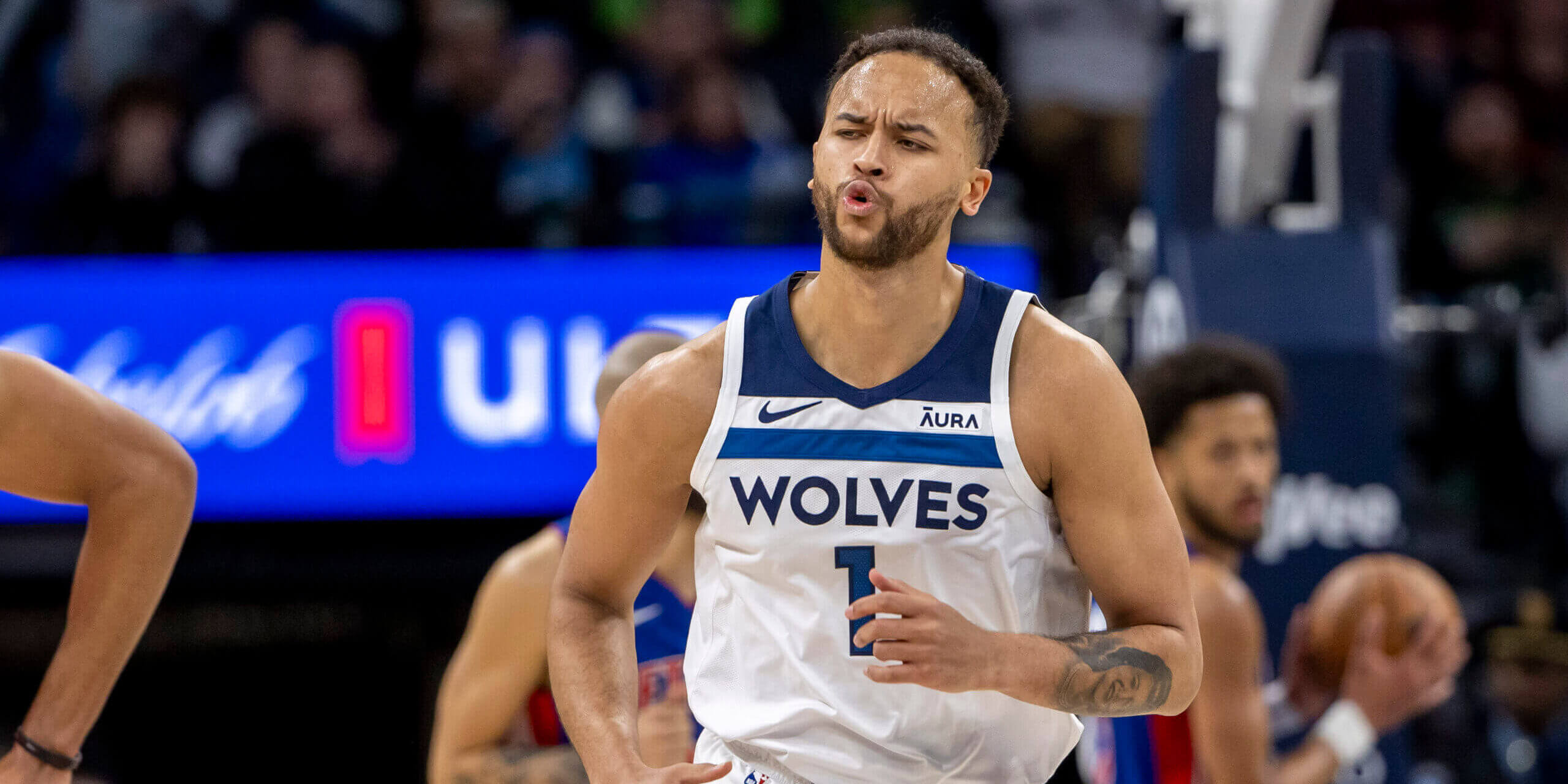
As a card-carrying Slo Mo fan (we signed him to a four-year offer sheet for the then-full midlevel exception amount of $37 million when I worked for the Grizzlies), I can’t say I’m surprised that BORD$ ranks him this highly. While his lack of shooting compromises spacing, especially in lineups without a stretch big, Anderson can make up for it with his creation for others; his 9.3 dimes per 100 possessions this season was pretty impressive for a tertiary option, and he handles the ball well enough to steal minutes at the point.
More importantly, Anderson is one of the game’s most underrated defensive players, with fast hands and cross-positional switchability at 6-foot-9. He was by far Minnesota’s most effective defender on Luka Dončić in the Western Conference finals.
On the flip side, he turns 31 over the summer, and you can time his 3-point release with a sundial. Minnesota’s luxury tax situation will make it difficult to bring him back. But if a rival team inks him to a shorter deal for nontaxpayer midlevel exception money, Anderson should return positive value. Fun fact: If he does sign again for the nontaxpayer midlevel exception, it would be his third such contract, accounting for every season since his rookie deal ended.


Caleb Martin

*Martin has a player option for 2024-25
Martin has a player option for a mere $7.1 million for 2024-25; surely he will opt out of this and get a much bigger bag on the open market. Whether that bag can come from the Heat is an open question, as Miami is already over the projected tax line before paying Martin a cent and has other roster issues that require attention.
Teams shouldn’t get too carried away with Martin’s Stephen Curry imitation in the 2023 Eastern Conference finals; he’s a career 35.7-percent shooter from 3 and at age 28 profiles more as a third wing on a good team than a plus starter. That said, one presumes his absolute floor is the nontaxpayer MLE, and if the right team gets desperate enough, it could be a lot more.


Obi Toppin

*Toppin will be a restricted free agent
Toppin was awesome in the playoffs, with his blazing speed a perfect complement to Indiana’s up-tempo style. The complication is that the Pacers just maxed out the guy starting ahead of him (see Siakam, above); can they really afford to pay Toppin too? He’s due a big raise from the $6.8 million he made in 2023-24, but the Pacers can only go up to about $14 million before they cross into the luxury tax; historically, this has been a no-go zone for the Indiana franchise.
The other piece of this is that the Pacers drafted a power forward in the lottery a year ago. Jarace Walker hardly played last season, but if Indiana sees him as a future piece, a Siakam-Toppin duo would keep him blocked for years. Thus, keep an eye on him: If the Pacers move Walker by draft night, it’s a good sign they’re fixing to keep Toppin.
If not, the Pacers might be vulnerable to offer sheet predators. At any price above the nontaxpayer midlevel exception, Indiana would have to think really hard before matching. However, that dilemma cuts both ways: Toppin may not fit nearly as well on another roster as he does with the Pacers.


Buddy Hield

Hield is 31 and was a disappointment in Philadelphia after the Sixers traded three second-round picks to get him from Indiana midseason. With the Sixers looking to use cap room, they’re likely to renounce his rights and move on to different options.
Hield doesn’t project as a starter anymore, but he can be a very effective bench option with his volume 3-point shooting. He’ll likely have suitors offering the full nontaxpayer midlevel exception, so the question is whether he can get even more than that from a cap room team. If not, how many years are teams willing to give him at his age? One ironic option would be for him to sign in Sacramento if Monk leaves.


Miles Bridges

There are significant off-court reasons to scotch the idea of Bridges, and teams will have to weigh that. In terms of on-court impact, Bridges’ BORD$ figure might come in a bit lower than some expect for an athletic scorer who is 26. He’s been a spotty shooter (34.9 percent from 3 in 2023-24, 34.7 percent career), his defense was somewhere between “disappointing” and “awful” much of the season, and he doesn’t draw many fouls or create a lot of chances for teammates.
What he does provide, in bunches, is scoring, averaging 21.0 points per game in 2023-24 while shooting 55 percent for his career on shots inside the arc. Given the dearth of combo forwards on the market, the basketball case for him as a sixth man is pretty solid.
If the market shuns him and he accepts a minimum deal, it would be the second straight season a 20-point scorer for the Hornets ended up playing for the minimum a year later; Kelly Oubre Jr. settled for the same in Philadelphia a year ago.


(Top photo of LeBron James and Paul George: Harry How, Ronald Martinez / Getty Images)

